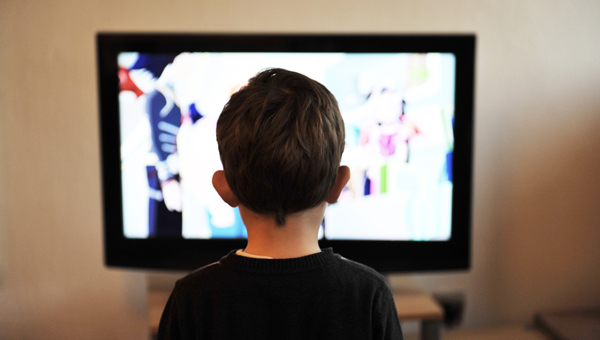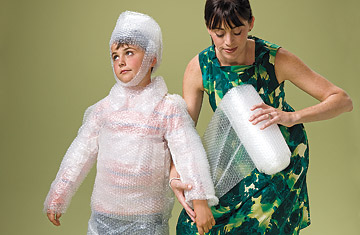Racism can be a difficult topic to discuss with adults, let alone children. Parents have a natural desire to want to protect their children from harm or the bad parts of the world and steer away from these conversations.
Children are likely already more aware of race, class, and gender differences than you realize.
Howard Stevenson, a clinical psychologist at Penn GSE has found elementary children are acutely aware of racial attitudes. Talking about injustice allows children to make sense of the things that do not go right in the world. At some point, your child will be treated differently. Or one of his/her friends will be. They will be exposed to or have a sense of unfairness or injustice that is rightfully upsetting. Instead of sheltering them, this can be a time to teach your child about social justice, while also helping process how painful these events can be for them, and for you.
While discussing racism can be an uncomfortable topic, it is vital that parents take the lead in teaching their children about this important topic. To begin, adults should take time to understand systemic racism and educate themselves.
Let us quickly define a few terms:
Systemic Racism: Systemic racism is not about an exchange of racial slurs between two individuals. It is about deep-rooted discrimination that has repeated itself again and again and becomes more and more ingrained in society during a span of generations.
Privilege: Unearned social power accorded by the formal and informal institutions of society to ALL members of a dominant group (e.g. white privilege, male privilege, etc.). Privilege is usually invisible to those who have it because we are taught not to see it, but nevertheless it puts them at an advantage over those who do not have it.
Everyday examples of privilege:
- Being able to walk into a store and find the main displays of shampoo are catered toward your hair type.
- Being able to turn on the television and see people of your race widely represented.
- Being able to move through life without being racially profiled or unfairly stereotyped
Racial Color Blindness: A view that race does not matter, that racism is no longer a problem, and that we all have equal opportunities. People who subscribe to colorblind explanations claim they do not see the color of people’s skin and believe everyone to be equal.
While this may seem helpful in battling racism, it is counterproductive.
Colorblindness prevents us from seeing the historical causes of racial inequality and how racial inequalities persist in our society. Whether we want to admit it or not, we are treated differently because of the color of our skin.
Black Lives Matter: Black Lives Matter was founded in 2013 in response to the acquittal of Trayvon Martin’s murderer. Black Lives Matter Foundation., Inc is a global organization in the United States, United Kingdom, and Canada, whose mission is to eradicate white supremacy and build local power to intervene in violence inflicted on black communities.
To say “All lives matter” can be offensive, because the majority race has not experienced racism…this is a form of color blindness.
How to talk to children: It depends on the age!
Infants and Toddlers: While children younger than three aren't going to understand what is happening on television, they will be able to pick up on the fear, urgency, or anger in people's voices and behaviors. At this age, stress shows up in fussy or unregulated behavior. To keep that from occurring, parents should read, listen to, or watch the news when the baby isn't physically there.
As early as six months, a baby's brain can notice race-based differences, and can internalize racial bias by ages two to four. Learning racism can happen without parental input, just by the racial stereotypes that are so prevalent in society. While helpful for all races, it's especially important for white children to see brown and black kids in a positive light to fight systemic racism, experts say. Books that profile multi-racial characters are an excellent way for parents to do that. And since it's never too early to read to a baby, start right away.
Preschool and Elementary Age: This is the age when kids begin to ask questions on why other people look different than they do. This is an opportunity for parents to model the behavior they want their kids to follow. Parents who have not already, should proactively engage their kids about this topic. Ask them what they know and what they've seen. Ask them how they are feeling. Validate their feelings. Parents will also need to give their children the broader societal context of racism. Age appropriate books and videos can be great resources (see resource list below).
Tweens and Teens: Tweens and teens likely will be seeing all the coverage of police brutality and protests on their personal devices and smartphones. Most teens get comfort by communicating with their friends on social media. Some have even begun participating in online activism.
This age group will be able to think more abstractly about racism, injustice and violent versus peaceful protest and discuss their views with parents. One of the best approaches with teenagers is to be interested in them and ask them questions (not accusatory ones)! Find out what they’ve seen online, have they witnessed unfairness in their schools and friend groups, what do they think, and what is upsetting or motivating them. Have a conversation that allows your child to come to their own understanding and see things in a larger social context. Parents can also make good use of movies and documentaries that can educate older teens on the history of discrimination.
Some parents feel isolated having these hard conversations with their children. When you have the chance, practice having a hard conversation with your partner or a friend before you must have it with your child.
Remember that other parents are struggling in the same ways that you are. Reach out to like-minded parents in your life at church, at your kids’ games, waiting to pick them up from camp or school. What are we trying to say? What do we think they need to hear? What feelings am I having? Can I model how to share those feelings?
It is okay to not know what to say…there are plenty of wonderful resources available to help educate yourself!
Resources:
bit.ly/ANTIRACISMRESOURCES: This document is intended to serve as a resource to white people and parents to deepen our anti-racism work. If you haven’t engaged in anti-racism work in the past, start now.
www.commonsensemedia.com: Common Sense Media is a non-profit that rates movies, TV shows, books, apps and other media for parents and schools. You can find almost 80 books and videos for preschoolers and older, some of which could easily be suitable for babies and toddlers. They also list options for how to jump start conversations about racism and how kids and teenagers can help fight it.
www.theBrownBookslelf.com The Brown Bookshelf is a website that supplies books that have, brown and black protagonists who deal at times with tough issues. Books are really, really fundamental, especially for younger kids."
http://kirabanks.com/: Kira Banks, a clinical psychologist whose website (Raising Equity) provides free videos and resources on how parents can fight racism and cultivate an open mind in themselves and their kids.






